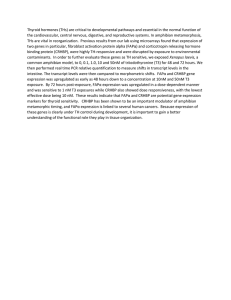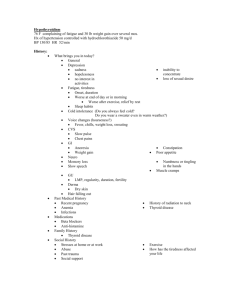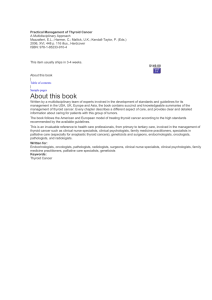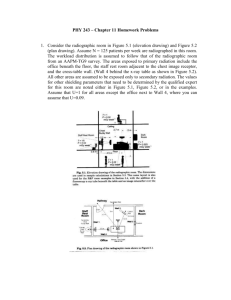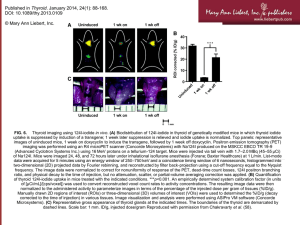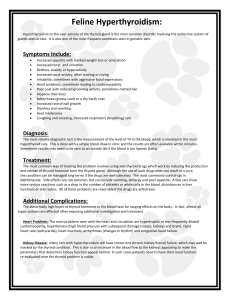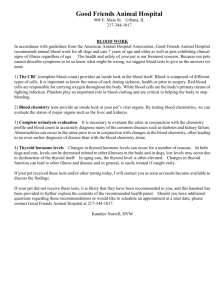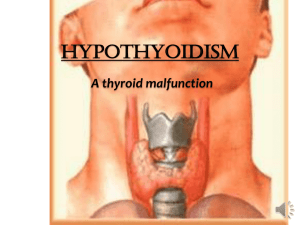We are submitting our manuscript entitled
advertisement
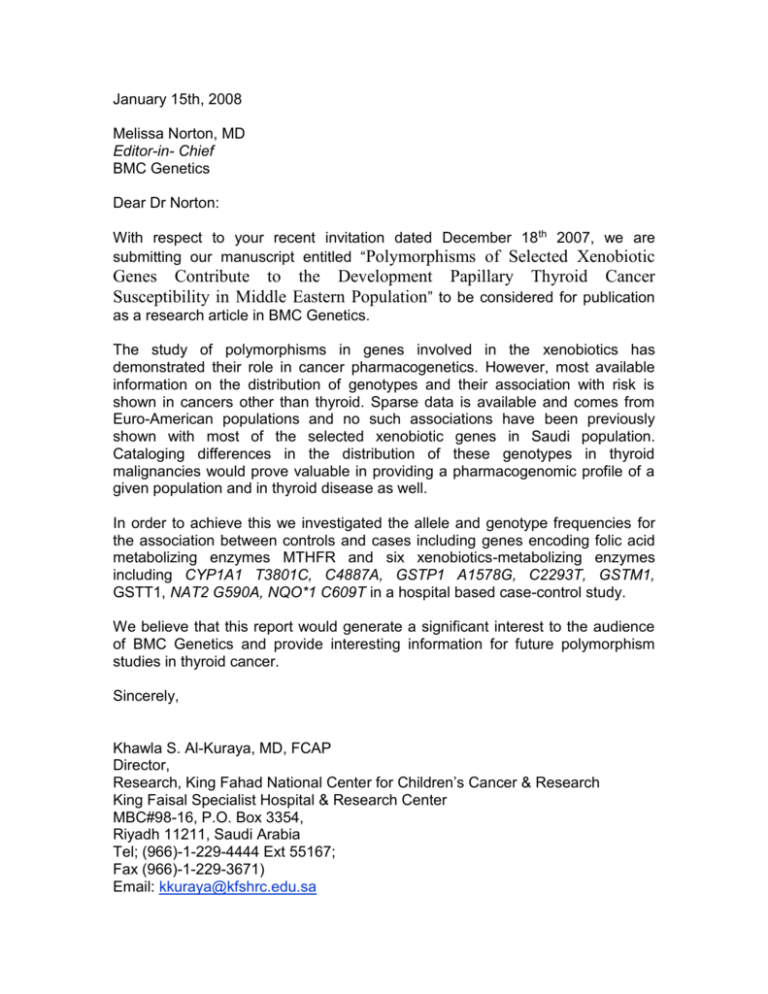
January 15th, 2008 Melissa Norton, MD Editor-in- Chief BMC Genetics Dear Dr Norton: With respect to your recent invitation dated December 18th 2007, we are submitting our manuscript entitled “Polymorphisms of Selected Xenobiotic Genes Contribute to the Development Papillary Thyroid Cancer Susceptibility in Middle Eastern Population” to be considered for publication as a research article in BMC Genetics. The study of polymorphisms in genes involved in the xenobiotics has demonstrated their role in cancer pharmacogenetics. However, most available information on the distribution of genotypes and their association with risk is shown in cancers other than thyroid. Sparse data is available and comes from Euro-American populations and no such associations have been previously shown with most of the selected xenobiotic genes in Saudi population. Cataloging differences in the distribution of these genotypes in thyroid malignancies would prove valuable in providing a pharmacogenomic profile of a given population and in thyroid disease as well. In order to achieve this we investigated the allele and genotype frequencies for the association between controls and cases including genes encoding folic acid metabolizing enzymes MTHFR and six xenobiotics-metabolizing enzymes including CYP1A1 T3801C, C4887A, GSTP1 A1578G, C2293T, GSTM1, GSTT1, NAT2 G590A, NQO*1 C609T in a hospital based case-control study. We believe that this report would generate a significant interest to the audience of BMC Genetics and provide interesting information for future polymorphism studies in thyroid cancer. Sincerely, Khawla S. Al-Kuraya, MD, FCAP Director, Research, King Fahad National Center for Children’s Cancer & Research King Faisal Specialist Hospital & Research Center MBC#98-16, P.O. Box 3354, Riyadh 11211, Saudi Arabia Tel; (966)-1-229-4444 Ext 55167; Fax (966)-1-229-3671) Email: kkuraya@kfshrc.edu.sa
